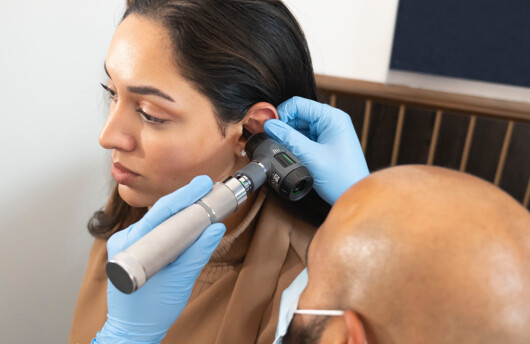4.9
135 Google Reviews

Welcome to another edition of Pindrop Hearing’s insights into the world of audiology. Today, we’ll delve into two critical topics that have captured significant attention recently: tinnitus relief through hearing aids and the potential connection between COVID-19 and hearing loss.
Tinnitus, often described as a persistent ringing or buzzing in the ears, can be a debilitating condition that affects millions worldwide. Its origins can vary, from noise-induced damage to age-related hearing loss, or even certain medications.
While there’s currently no known cure for tinnitus, many treatments and therapies aim to minimise its impact. Among these, hearing aids have emerged as a beneficial tool for many tinnitus sufferers. But how?
It’s essential to remember that while hearing aids can be beneficial for many tinnitus sufferers, they aren’t a one-size-fits-all solution. Consulting with an audiologist is crucial to find the right treatment tailored to individual needs, so be sure to get in touch with us today.

With the global spread of the COVID-19 pandemic, researchers have been hard at work deciphering the virus’s many effects on the human body. Among the myriad of symptoms and long-term impacts, some studies have suggested a potential link between COVID-19 and auditory issues, including hearing loss, tinnitus, and vertigo.
Though these connections are still under investigation, it’s evident that COVID-19 can have a myriad of impacts on our health, including our hearing. If you’ve experienced COVID-19 and are noticing changes in your hearing or an onset of tinnitus, it’s essential to see an audiologist or ENT specialist. Book your appointment today.
The world of audiology is continually evolving, with new research shedding light on conditions like tinnitus and the broader implications of global health events like the COVID-19 pandemic.
At Pindrop Hearing, we’re committed to keeping you informed and providing the best care for all your hearing needs. Stay tuned for more insights and updates.

Pindrop Hearing Limited is registered in England and Wales No 05909296 Trading address 41 Harley Street, London, W1G8QH. Pindrop Hearing Limited acts as a credit broker and only offers credit products from Tabeo.
Pindrop Hearing Limited is authorised and regulated by the Financial Conduct Authority. Our registered number is 796909. Credit subject to age and status.
© Pindrop Hearing 2024